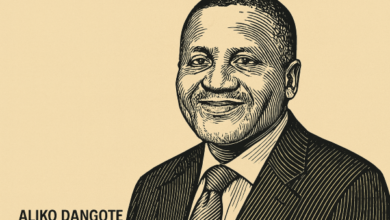Senate Drops Natasha as Diaspora Committee Chair Amid Deepening Tensions

The Nigerian Senate has again reshuffled its committee leadership, removing Senator Natasha Akpoti-Uduaghan (PDP–Kogi Central) as Chairperson of the Senate Committee on Diaspora and Non-Governmental Organisations. The announcement was made on the floor of the Senate on Thursday, June 27, by Senate President Godswill Akpabio, who named Senator Aniekan Bassey as her replacement.
Though presented as a routine administrative decision, the move is widely seen as an escalation in the ongoing power tussle between Akpoti-Uduaghan and Senate leadership, raising questions about the politicization of committee appointments and the role of gender dynamics in Nigeria’s male-dominated legislative space.
“There is a change in the committee chairmanship. The Senate Committee on Diaspora and Non-Governmental Organisations will now be chaired by Sen. Aniekan Bassey,” Akpabio declared at plenary.
The committee, which provides legislative oversight for diaspora affairs, including remittances, global engagements, and NGO relations, plays a strategic role in shaping Nigeria’s external relations and soft power among its estimated 17 million-strong diaspora community.
Context: From Committee Reassignments to Senate Suspension
This is the second time Senator Natasha has been removed from a committee chairmanship within a few months. In February 2025, she was reassigned from the more influential Senate Committee on Local Content—a body with significant oversight over oil and gas local participation—to the relatively peripheral Diaspora Committee. That demotion followed a heated exchange over seating arrangements and her growing public confrontation with the Senate President.
Matters reached a boiling point in March 2025, when Akpoti-Uduaghan was suspended from the Senate after she accused Senate President Akpabio of sexual harassment and abuse of office—allegations that shook the National Assembly and attracted wide media scrutiny.
In a dramatic legal twist, a Federal High Court in Abuja recently ordered her reinstatement, declaring her suspension unconstitutional and politically motivated. However, the Senate has yet to comply with the court’s ruling. Senator Yemi Adaramodu, Chairman of the Senate Committee on Media and Public Affairs, claimed the upper chamber had not been officially served with the Certified True Copy (CTC) of the judgment.
Political and Institutional Implications
The removal of Akpoti-Uduaghan from yet another committee position is being interpreted by political observers as a calculated move to diminish her influence, possibly in retaliation for her bold accusations against the Senate leadership. It also signals a broader institutional tension between judicial pronouncements and legislative autonomy, particularly in matters relating to internal discipline and committee appointments.
BRANDECONOMY Political Insight: “This development presents a litmus test for Nigeria’s democratic maturity—where the lines between accountability, legal oversight, and political vendetta are dangerously blurred.”
From a governance standpoint, the episode risks undermining public confidence in the Senate’s independence, respect for court rulings, and its ability to foster inclusivity—particularly for women and minority voices in the legislature.
Diaspora Agenda in Limbo?
With the leadership change, stakeholders in the diaspora and civil society space are concerned about the continuity of engagement policies and reform initiatives. Senator Natasha, known for her activist background and grassroots engagement, was seen as a bridge-builder between Nigerians abroad and policy institutions back home.
Now, analysts fear that her removal may stall momentum on key diaspora initiatives, particularly around remittance optimization, dual citizenship advocacy, and diaspora voting rights.
Conclusion: Power, Politics, and Precedents
As the dust settles, all eyes remain on how the Senate responds to the judicial order mandating Natasha Akpoti-Uduaghan’s full reinstatement. Beyond the personal drama, the unfolding saga raises fundamental questions about the balance of power among Nigeria’s democratic institutions, the role of women in politics, and the thin line between discipline and suppression in legislative affairs.












